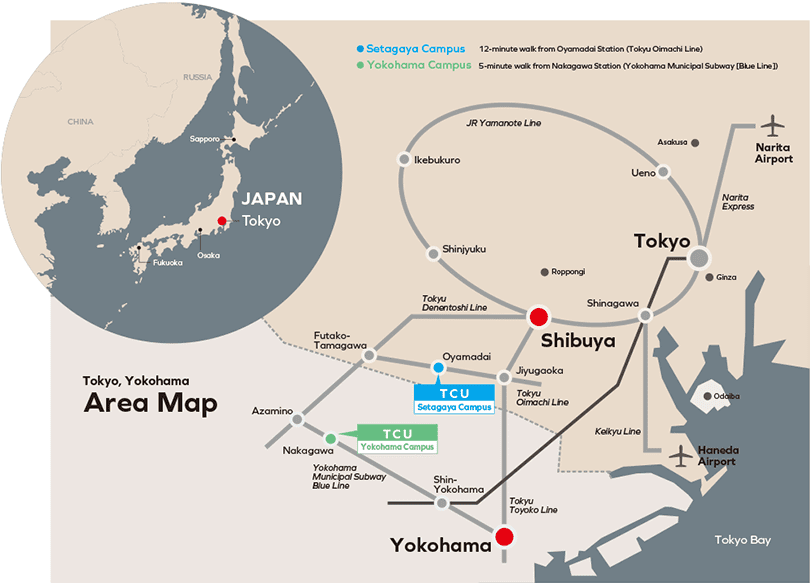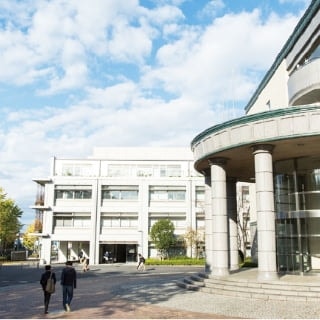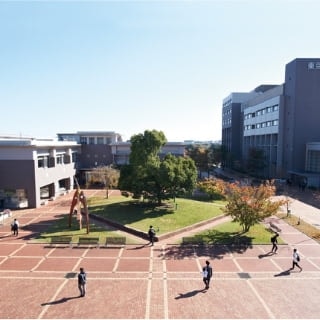
About TCU
Campus Lacation
Tokyo City University has campuses, Setagaya Ward, Tokyo and one in Yokohama. Both cities are known in Japan as scenic and cultural hubs. Our campuses are located in quiet and green residential areas, and have easy access to the inner city. It is a peaceful place to spend your time as a student.

Setagaya
Campus

- Faculty of Science and Engineering
- Faculty of Architecture and Urban Design
- Faculty of Information Technology
- Faculty of Urban Life Studies
- Faculty of Human Life Sciences
- Graduate School of Integrative Science and Technology
Located alongside the Tamagawa River which marks the border between Tokyo and Kanagawa. Setagaya Campus has the largest campus within the 23 special wards of Tokyo of any private STEM university, and is close to popular areas such as Jiyugaoka and Futako-Tamagawa.
Yokohama
Campus

- Faculty of Environmental Studies
- Faculty of Informatics
- Faculty of Design and Data Science
- Graduate School of Environmental and Information Studies
This campus was carefully built to be environmentally friendly and was the first educational institution in Japan to receive ISO14001 (Environment) certification. It is not only an eco-campus but as leading edge information facility as well.
Shibuya

The area attracts information and culture. With large retail buildings, movie theaters, clubs, and music venues, Shibuya is a cultural and global fashion trendsetter at the forefront of youth culture. A huge number of people come and go through the “scramble” crossing in front of the station—one of the scenes that symbolize modern Japan. Now, extensive redevelopment is underway around the station and the area is magically transforming itself.
Yokohama

Since opening in 1859, the port town has flourished as the gateway to Western culture. Yokohama is still heavily tinged with a distinctive, atmosphere. In addition to popular tourist sites and the historic buildings of Motomachi, Chinatown, and Yamashita Park, the Yokohama Red Brick Warehouse has become a city landmark. The beautiful ocean view of the harbor at night is one of the attractions of the city. is underway around the station and the area is magically transforming itself.
